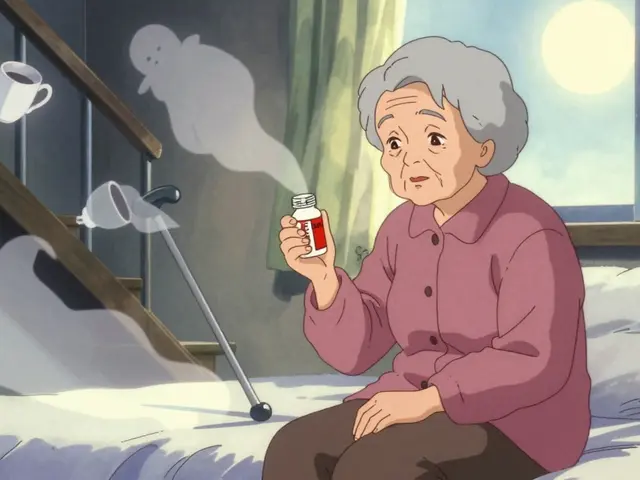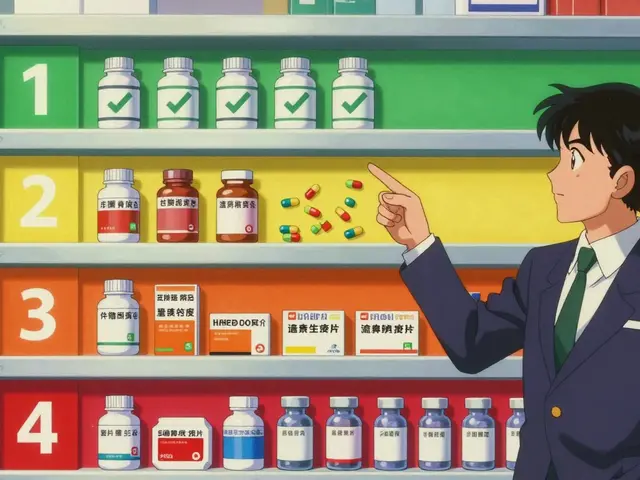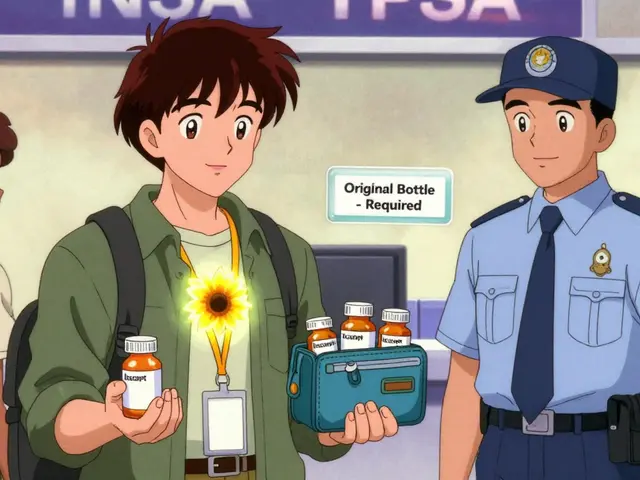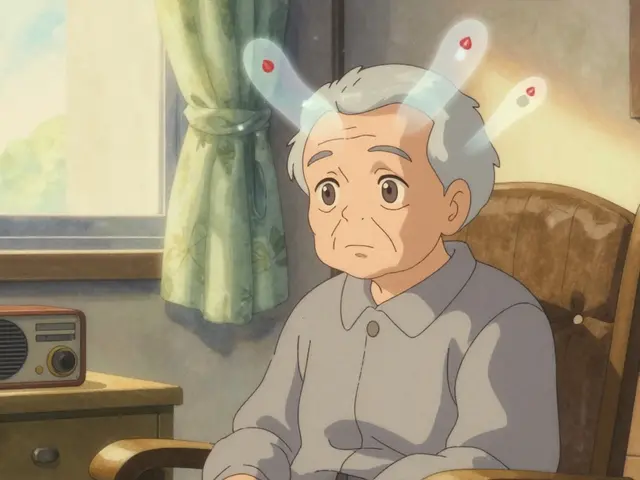Understanding Heart Rhythm Disorders
Before we dive into debunking the myths surrounding heart rhythm disorders, let's first understand what these disorders are. Heart rhythm disorders, also known as arrhythmias, occur when the electrical impulses that coordinate your heartbeats don't work properly, causing your heart to beat too fast, too slow, or irregularly. They are common and can happen to anyone, regardless of age or overall health. While some arrhythmias can be life-threatening, many are not. They can feel frightening but are often manageable with the right approach and treatment plan.
Myth 1: Only Elderly People Experience Heart Rhythm Disorders
Many people believe that only the elderly can suffer from heart rhythm disorders. This is a common myth that is simply not true. Although the risk of developing arrhythmias increases with age, they can occur at any age, even in children. Some people are born with congenital heart conditions that can lead to arrhythmias, and lifestyle factors, such as high stress levels or excessive caffeine intake, can also trigger these disorders in young people.
Myth 2: All Arrhythmias Are Life-Threatening
Not all arrhythmias are life-threatening. While it's true that some types of heart rhythm disorders can increase the risk of stroke or cardiac arrest, many are benign and simply need to be monitored. It's important to remember that everyone's heart can occasionally skip a beat or flutter, but that doesn't necessarily mean you have a dangerous arrhythmia. Regular check-ups with your healthcare provider can help you understand and manage these conditions effectively.
Myth 3: If You Have an Arrhythmia, You Must Avoid Physical Activity
Many people mistakenly believe that if they have a heart rhythm disorder, they must avoid all physical activity. This is another myth that needs debunking. In fact, regular exercise is beneficial for most people with arrhythmias. It strengthens the heart muscle, helps maintain a healthy weight, and can even reduce the frequency of arrhythmia episodes. Of course, it's always important to discuss any exercise program with your healthcare provider to ensure it's safe and appropriate for your specific condition.
Myth 4: Heart Rhythm Disorders Can't Be Treated
Another common misconception is that heart rhythm disorders can't be treated. This is absolutely not true. There are many treatments available for arrhythmias, ranging from lifestyle changes and medications to procedures such as cardiac ablation or the implantation of a pacemaker or defibrillator. The type of treatment recommended will depend on the type and severity of the arrhythmia, as well as the patient's overall health and personal preferences.
Myth 5: Arrhythmias Always Cause Symptoms
Many people believe that if they have a heart rhythm disorder, they will always experience symptoms, such as palpitations, chest pain, or dizziness. However, this is not always the case. Some people with arrhythmias have no symptoms at all, and the condition may only be detected during a routine check-up or through an ECG. Even if you don't have symptoms, it's still important to get regular check-ups to monitor your heart health.
Myth 6: Drinking Caffeine Causes Arrhythmias
Another common myth is that drinking caffeine can cause arrhythmias. While it's true that excessive caffeine can trigger certain types of arrhythmias in some people, moderate consumption is generally safe for most individuals. If you have been diagnosed with a heart rhythm disorder, it's always best to discuss your caffeine intake with your healthcare provider.
Myth 7: All Heart Palpitations Are Due to Arrhythmias
While it's true that heart palpitations can be a sign of an arrhythmia, they can also be caused by many other factors, such as stress, anxiety, certain medications, or even too much caffeine. If you experience frequent or persistent palpitations, it's important to seek medical attention. However, occasional palpitations are usually nothing to worry about and don't necessarily mean you have a heart rhythm disorder.







Gayatri Potdar
July 1, 2023 AT 17:19They’re hiding the real cure behind big pharma’s agenda!
Marcella Kennedy
July 4, 2023 AT 00:52Thank you for pulling together such a clear rundown of the myths that keep people scared.
It’s amazing how many of us have been told that any irregular heartbeat is a death sentence.
In my experience as a volunteer health educator, I’ve seen teenagers who think a skipped beat means they’ll faint on the soccer field, only to discover it’s a perfectly benign premature contraction.
The truth is, the heart is a resilient muscle that can adapt to a lot of stress if we give it proper care.
Regular check‑ups are not just a formality; they let us catch the few arrhythmias that really need intervention before they become dangerous.
Exercise, contrary to the myth, actually strengthens the cardiac conduction system and can reduce the frequency of ectopic beats when done responsibly.
Of course, you always want a doctor’s blessing before you start a new high‑intensity program, especially if you have a known conduction issue.
I also want to stress the importance of managing stress-mindfulness, breathing exercises, and adequate sleep go a long way in keeping the autonomic nervous system calm.
Caffeine moderation is another sweet spot; a latte here or there isn’t likely to trigger a storm, but gulping down a 12‑oz energy drink could.
And let’s not forget that many arrhythmias are completely silent; they’re only discovered on an ECG done for a routine physical.
That’s why routine screening can be a lifesaver for those who are asymptomatic.
When it comes to treatment options, the field has advanced dramatically-radio‑frequency ablation, wearable monitors, and even smartphone‑based ECGs are now commonplace.
For those who need a device, modern pacemakers are tiny and can adjust their pacing in real time, which is a far cry from the clunky machines of the past.
Ultimately, knowledge is power, and the more we debunk these myths, the less fear we’ll have surrounding heart rhythm disorders.
Keep sharing this info, keep asking questions, and most importantly, keep listening to your own body’s signals.
Jamie Hogan
July 6, 2023 AT 08:26One must appreciate the nuanced electrophysiological substrates that underlie these arrhythmic phenotypes rather than resorting to populist oversimplifications
Ram Dwivedi
July 8, 2023 AT 15:59Hey folks 😊 – just wanted to add that the autonomic balance plays a huge role in arrhythmia triggers; breathing techniques like box breathing can actually stabilize heart rhythm and reduce occasional palpitations. If you ever feel a flutter, try a slow 4‑4‑4‑4 inhale‑hold‑exhale‑hold pattern before jumping to conclusions. 🌿
pooja shukla
July 10, 2023 AT 23:32Listen up, this stuff is straight up science – no need to buy into western hype that says only old folks get these issues. Our Indian diet is naturally heart‑friendly if you ditch the processed junk and stick to fresh spices and turmeric.
Poonam Mali
July 13, 2023 AT 07:06The pathophysiological cascade behind ectopic atrial activity is nothing short of a theatrical performance where ion channel dysregulation, autonomic overflow, and substrate heterogeneity converge to produce a symphony of premature depolarizations that most laypeople naively label as “heart palpitations”.
Alan Whittaker
July 15, 2023 AT 14:39The so‑called “nuanced electrophysiological substrates” are just code‑words for the hidden agenda the med‑industry pushes to keep us dependent on expensive implants and endless drug regimens – they don’t want you to know the natural reset mechanisms exist.
Michael Waddington
July 17, 2023 AT 22:12Honestly, that dramatic description sounds impressive but at the end of the day it’s just a bunch of fancy words for a simple misfire that can be fixed with lifestyle tweaks, not a lifelong high‑cost saga.